Going nowhere fast: Suez Canal could be blocked for weeks as cargo ship refuses to budge
Unmoved by tugs, dredgers and diggers, 400m ship still stuck across vital shipping lane as queues, costs mount | WATCH
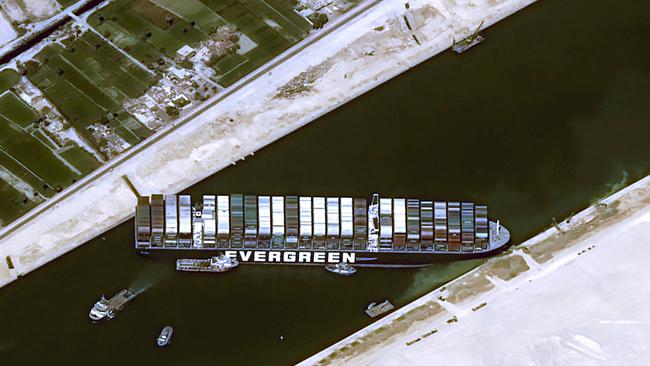
The giant cargo ship that has blocked the Suez Canal could take weeks to remove, according to salvage experts, triggering a crisis for international shipping and a potential shortage of essential goods and fuel.
The 400-metre long MV Ever Given, one of the world’s largest container ships, remained firmly wedged across the vital shipping lane that connects the Red Sea to the Mediterranean, despite the efforts of eight tugboats, dredgers and heavy diggers to free it.
By Thursday night more than 230 ships, containing billions of dollars worth of goods, had joined queues around the 195-kilometre canal, through which 12 per cent of the world’s shipping passes every year.
The Japanese ship-leasing company that owns the Ever Given, which ran aground on Tuesday morning while carrying up to 20,000 containers from China to the Netherlands, apologised and admitted that it faced “extreme difficulty” refloating it.
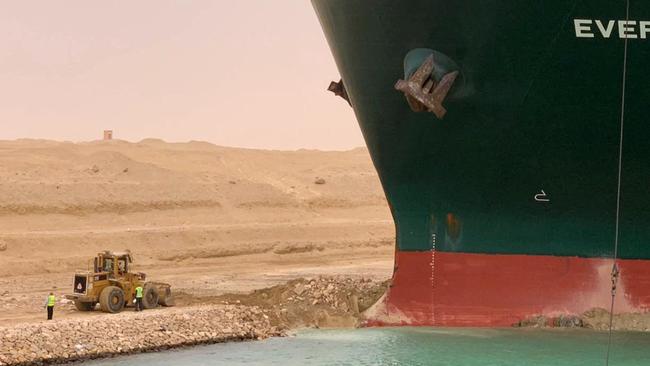
An emergency response team from Smit Salvage, a Dutch-based company, arrived on Thursday.
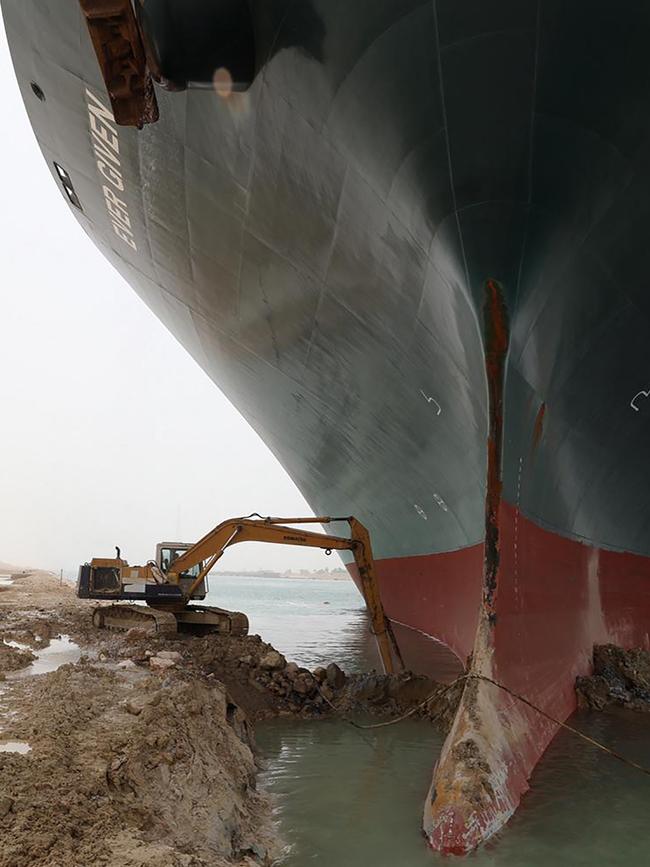
Peter Berdowski, chief executive of the salvage team’s parent company Boskalis, compared the stricken ship to a beached whale, and said it could take “days or weeks” to remove. The work could involve some dredging and removing individual containers from the ship, he said.
Egypt’s Suez Canal Authority (SCA) had previously ruled out removing containers because of how long that could take. Nearly 19,000 ships passed through the canal last year carrying more than one billion tonnes of cargo, according to the SCA.
Every day the blockage continues it ties up an estimated $AU11.77 billion worth of goods shipped from Asia to Europe and North America and delays the delivery of everything from fuel, food, cars and consumer products to medicines and vaccines against the coronavirus.
The jam also prevents the return of empty containers to Asia, exacerbating a container shortage caused by the pandemic’s disruptions to shipping.
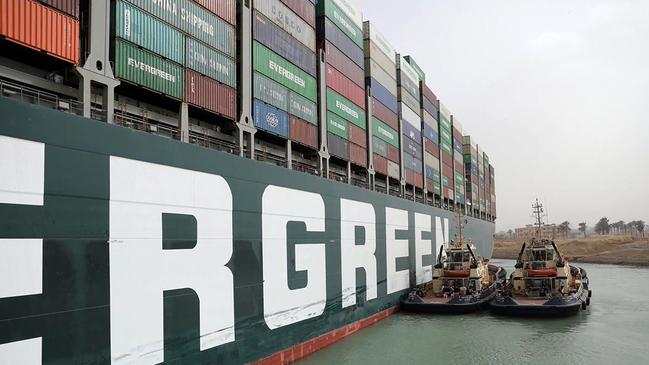
“It’s almost like a ketchup bottle,” Lars Jensen, chief executive of SeaIntelligence Consulting, said. “The longer this lasts, the higher risk that we are going to see major congestion problems in the European ports.”
Plan to dig it out at the ends
Eight tugs were attached to the Ever Given on Thursday morning in an attempt to push and pull it free of the canal’s banks, the SCA said in a statement. All their efforts failed, even at high tide, and Berdowski suggested that using tugs could be counter-productive.
“The risk is that you break the ship,” he explained.
It is looking likely that the vessel will have to be lightened and dug out at the ends, an operation that could take considerable time, he said.
The Smit Salvage team has previously worked on high-profile maritime recovery operations, including the Russian nuclear submarine Kursk, which sank in 2000, and the Italian cruise ship Costa Concordia in 2012.
Lieutenant General Osama Rabie, head of the canal authority, said that an older, disused section of the canal had been reopened to help some ships to traverse the waterway. However, with dozens of ships stuck in the canal basin on Egypt’s Great Bitter Lake, and more approaching the bottleneck by the hour, businesses were looking to re-route vessels around the southern tip of Africa, which the canal was built to circumvent.
Evergreen, a Taiwanese company, operates the Ever Given, although it is managed by a German company based in Singapore and sails under the flag of Panama. The ship’s operators and Egyptian officials blamed winds of up to 48kph, plus a sandstorm sweeping the area, for causing the accident.
The Times
More Coverage
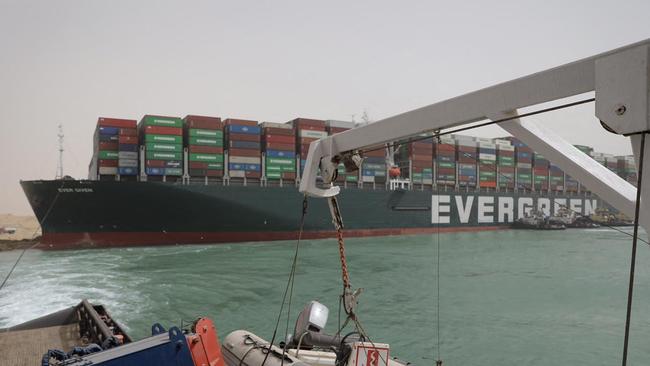

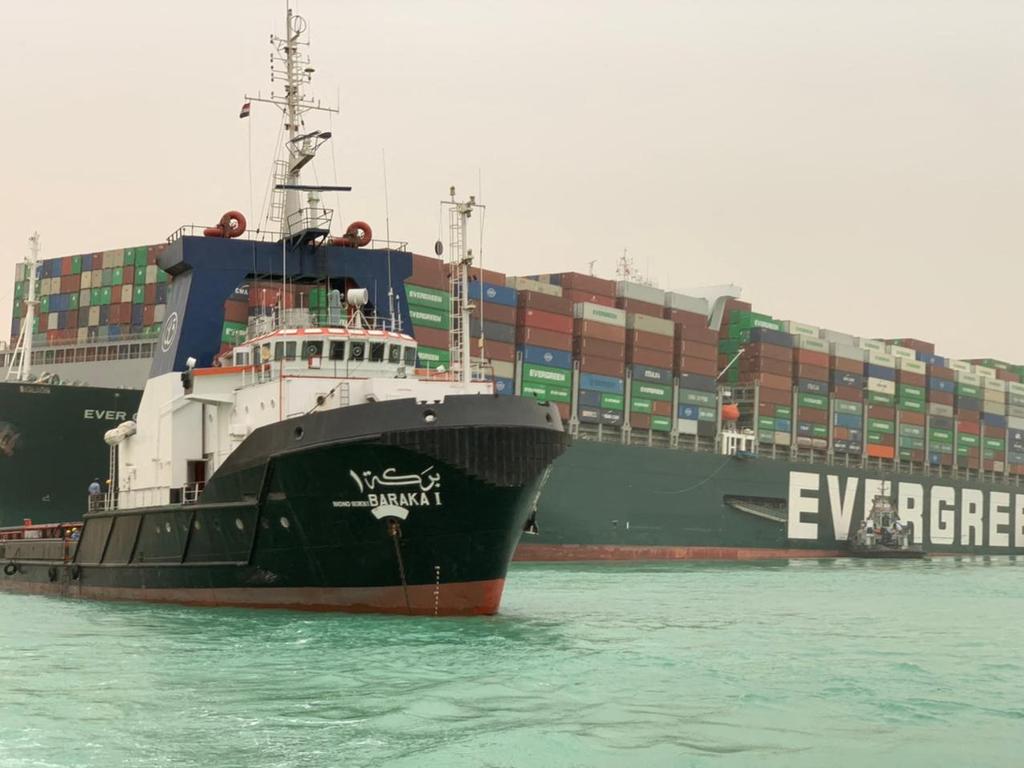




To join the conversation, please log in. Don't have an account? Register
Join the conversation, you are commenting as Logout